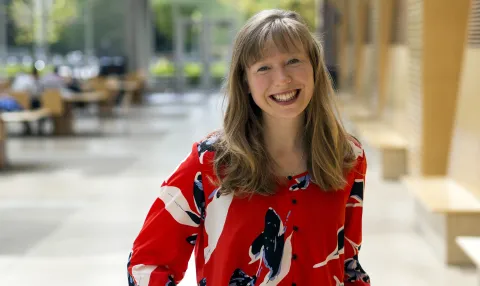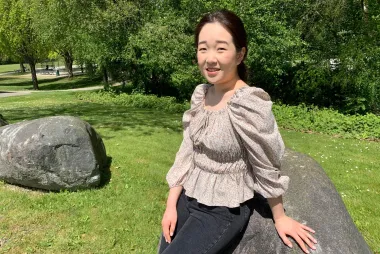“The nursing profession allows you to bring your interests, passions, past experiences, and gifts, and find (or create) the place where they intersect.”

Keara Graham
- Degree: Bachelor of Science in Nursing
- Grad year: 2019
- Program:
- Campus: Vancouver
After completing a Bachelor of Human Kinetics degree, Keara worked in various capacities in communities across Northern Ontario and Northern Quebec. It was partially through these experiences that she was driven to pursue nursing, as both a means for genuine connection, and as a vessel to improve access to quality health care for vulnerable populations. During her time in the UBC BSN program, Keara was involved with the Canadian Nursing Students Association (CNSA) and had the privilege of representing her classmates at regional and national conferences. Keara is passionate about integrating a more widespread use of the palliative approach to care and relished the opportunity to attend the 2018 International Congress on Palliative Care. She is looking forward to working alongside members of the interdisciplinary care team to tackle new challenges that emerge in an ever-changing health landscape.
What has made your time at UBC the most memorable?
Truly, there is no contention: the people! I could not have asked for a more supportive, inspiring and dedicated group of people to walk alongside over the past 20 months. Many of my favourite memories are listening to my classmates, professors, and colleagues alike, speak about issues they are passionate about and visions they carry for the future of health care. In the clinical setting, I cherished my encounters with patients and their families, and was continually grateful for the patience and warmth they extended to me as a student nurse.
What has been your most valuable non-academic experience studying nursing at UBC?
My most valuable non-academic experience was living with my friend, Betsy. I met Betsy one year ago and throughout our time living together, we celebrated her eightieth birthday, attended numerous artistic performances, baked countless batches of muffins and most recently, travelled together to Yukon. Betsy has inspired me to live intentionally and fully in each season of life, and to seek value and meaning in every interaction. She has also taught me the importance of fostering personhood as I care for and interact with older adults in the health care system.
What advice would you give a student considering an undergraduate degree in nursing?
If you are considering a degree in nursing, I want to assure you that there is a place for you in this vibrant and dynamic field. The nursing profession allows you to bring your interests, passions, past experiences, and gifts, and find (or create) the place where they intersect. We need nurses who are willing to be their most vulnerable and powerful selves. Thinking back to when I entered the nursing program two years ago, I felt such a sense of freedom and excitement by the possibilities ahead. I encourage you to take one step at a time and be present throughout it all — it will be finished before you know it, and what a gift it is to embrace the unknowns and trust in the process.
How are you applying the skills you learned through your studies at UBC?
It is such an exciting time to be entering the nursing profession. Studying in the BSN program at UBC has empowered me to not only include my patients and their families as members of the health care team, but to find innovative ways to support them within the scope of my practice. It has been incredibly encouraging to witness patient voices being amplified in discussions regarding health care delivery and evaluation. Throughout my studies, I’ve appreciated the emphasis that is placed on the value of “being with” rather than simply “doing for” — this is a concept that I hope to continue fostering in my own nursing practice. It has been a privilege to be taught and mentored by academic scholars, professors and lab instructors who are passionate about providing safe and compassionate care. Thank you for showing me that it is possible to straddle the policy arena and the clinical environment.


